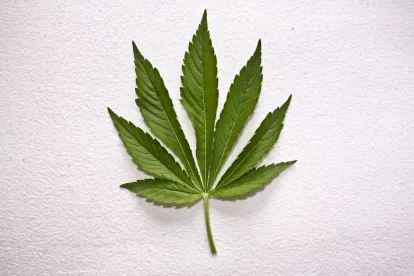As noted in prior posts, the Ninth Circuit opened the door, albeit narrowly, to cannabis company bankruptcies when it issued its opinion in Garvin v. Cook Invs. NW on May 2, 2019. In Garvin, the Ninth Circuit affirmed the confirmation of a plan of reorganization proposed by the lessor to a marijuana growing operation. The Ninth Court adopted a narrow interpretation of section 1129(a)(3)’s confirmation requirement that a plan be proposed “not by any means forbidden by law”, holding that this requirement applies only to the “means of a reorganization plan’s proposal, not its substantive provisions.” The Court refused to consider the U.S. Trustee’s argument that the debtors’ plan should be dismissed “for cause” under section 1112(b) since the U.S. Trustee had failed to renew the dismissal motion prior to confirmation.
It did not take long before the Garvin Court was criticized for even partially opening the door to cannabis company bankruptcies.
On May 21, 2019, the U.S. Bankruptcy Court for the Eastern District of Michigan issued its opinion in In re Basrah Custom Design, Inc. In Basrah, the bankruptcy court dismissed the debtor’s case for cause under section 1112(b). The bankruptcy court held that the debtor had unclean hands, since the purpose of the bankruptcy case was to allow the debtor’s principal to either lease commercial space to a marijuana grower or enter into the marijuana growing business himself, all in violation of the federal Controlled Substances Act (the “CSA”). The ultimate holding of Bashrah was not surprising since most courts have dismissed cannabis company bankruptcy cases utilizing the same rationale. What was surprising was the length to which the bankruptcy court went to criticize the Garvinopinion, especially after recognizing that Garvin was not binding upon the court.
First, the bankruptcy court made it quite clear that it rejected the Ninth Circuit’s narrow interpretation of section 1129(a)(3). Second, the bankruptcy court questioned whether the Ninth Circuit should have refused to consider the section 1112(b) dismissal issue, writing that the “refusal, on waiver grounds, arguably is questionable, because it allowed the affirmance, by a federal court, of the confirmation of a Chapter 11 plan under which a debtor would continue to violate federal criminal law” under the CSA.
What should also be troubling to cannabis companies, and those doing business with them, is the bankruptcy court’s consideration of whether the case should be dismissed or converted. The bankruptcy court held that conversion would serve no purpose since it would likely lead to a stay relief motion being brought by MJCC, a state-licensed cannabis company, seeking possession of the commercial property where MJCC was operating its business. The court noted that such a motion was untenable given that the court would, in a sense, be sanctioning MJCC’s violation of the CSA:
In this case, the Court likely would have to refuse to grant any stay relief, or any other relief, requested by MJCC, because MJCC also has unclean hands. The granting of stay relief to MJCC obviously would assist MJCC in its efforts to open and operate a medical marijuana dispensary, in violation of federal law. Just as a federal court cannot be asked to enforce the protections of the Bankruptcy Code in aid of a Debtor whose activities constitute a continuing federal crime, neither can a federal court be asked to enforce any creditor protections under the Bankruptcy Code, such as the relief-from-stay provisions of 11 U.S.C. § 362(d), in aid of a creditor’s commission of a federal crime. (citations omitted; emphasis in original)
What are the implications of Basrah? One could argue that Basrah is just another decision in a long line of cases where the bankruptcy courts have dismissed bankruptcy petitions filed by debtors who derive income, directly or indirectly, from the sale of cannabis. After all, even suppliers of equipment utilized by both cannabis and non-cannabis companies have been precluded from seeking bankruptcy relief. See In re Way to Grow, Inc., 597 B.R. 111 (Bankr. D. Colo. 2018) (chapter 11 case filed by hydroponic supplier dismissed for cause under section 1112(b)). Under this view, Basrah breaks no new ground in the ongoing cannabis/bankruptcy debate. However, Basrah was the first cannabis case decided post-Garvin and the bankruptcy court’s opinion at least indicates that whatever gains the cannabis industry made in Garvin are likely going to be scaled back, at least outside of the Ninth Circuit. Furthermore, the Office of the U.S. Trustee is likely not going to repeat the mistake it made in Garvin, but will instead continue to aggressively seek the dismissal of cannabis bankruptcies for cause under section 1112(b).
Where does Basrah leave the cannabis industry? For those cannabis companies in the Ninth Circuit, the door remains partially open to bankruptcy given the Ninth Circuit’s narrow interpretation of section 1129(a)(3)’s plan confirmation requirements. However, even in the Ninth Circuit, a “for cause” dismissal of cannabis company cases remains a distinct possibility (or probability). For those cannabis companies outside of the Ninth Circuit, the bankruptcy courts remain largely closed. Additionally, Basrah is a reminder to those in the cannabis industry that they may be precluded from seeking any relief in a bankruptcy case filed by a business counterparty if that relief would assist them in their cannabis businesses in violation of the CSA. Perhaps the only thing that is certain is that this debate will continue, especially as the weaker cannabis companies succumb to competition and find the need to either reorganize or liquidate.




 />i
/>i

